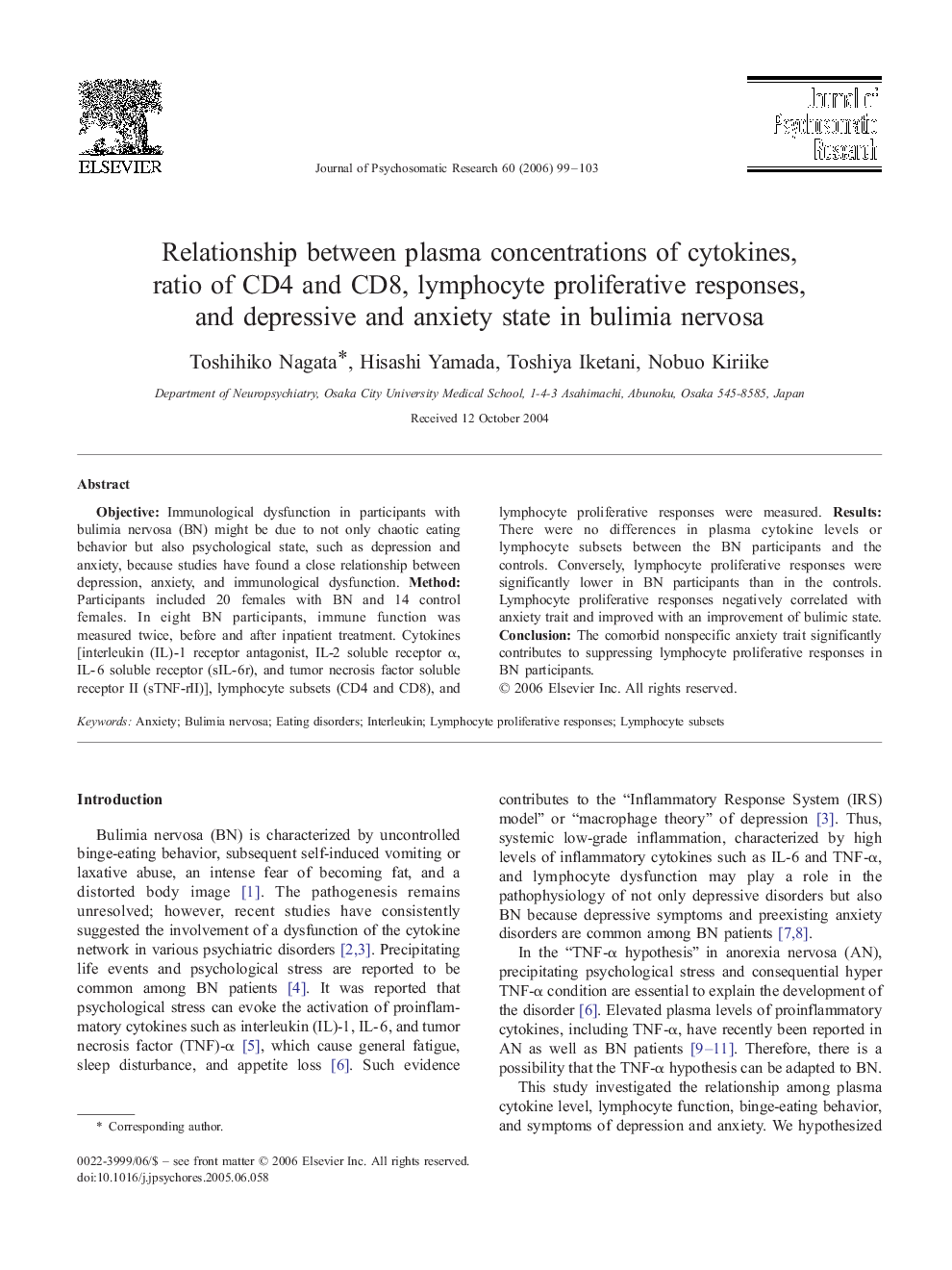| Article ID | Journal | Published Year | Pages | File Type |
|---|---|---|---|---|
| 951105 | Journal of Psychosomatic Research | 2006 | 5 Pages |
ObjectiveImmunological dysfunction in participants with bulimia nervosa (BN) might be due to not only chaotic eating behavior but also psychological state, such as depression and anxiety, because studies have found a close relationship between depression, anxiety, and immunological dysfunction.MethodParticipants included 20 females with BN and 14 control females. In eight BN participants, immune function was measured twice, before and after inpatient treatment. Cytokines [interleukin (IL)-1 receptor antagonist, IL-2 soluble receptor α, IL-6 soluble receptor (sIL-6r), and tumor necrosis factor soluble receptor II (sTNF-rII)], lymphocyte subsets (CD4 and CD8), and lymphocyte proliferative responses were measured.ResultsThere were no differences in plasma cytokine levels or lymphocyte subsets between the BN participants and the controls. Conversely, lymphocyte proliferative responses were significantly lower in BN participants than in the controls. Lymphocyte proliferative responses negatively correlated with anxiety trait and improved with an improvement of bulimic state.ConclusionThe comorbid nonspecific anxiety trait significantly contributes to suppressing lymphocyte proliferative responses in BN participants.
